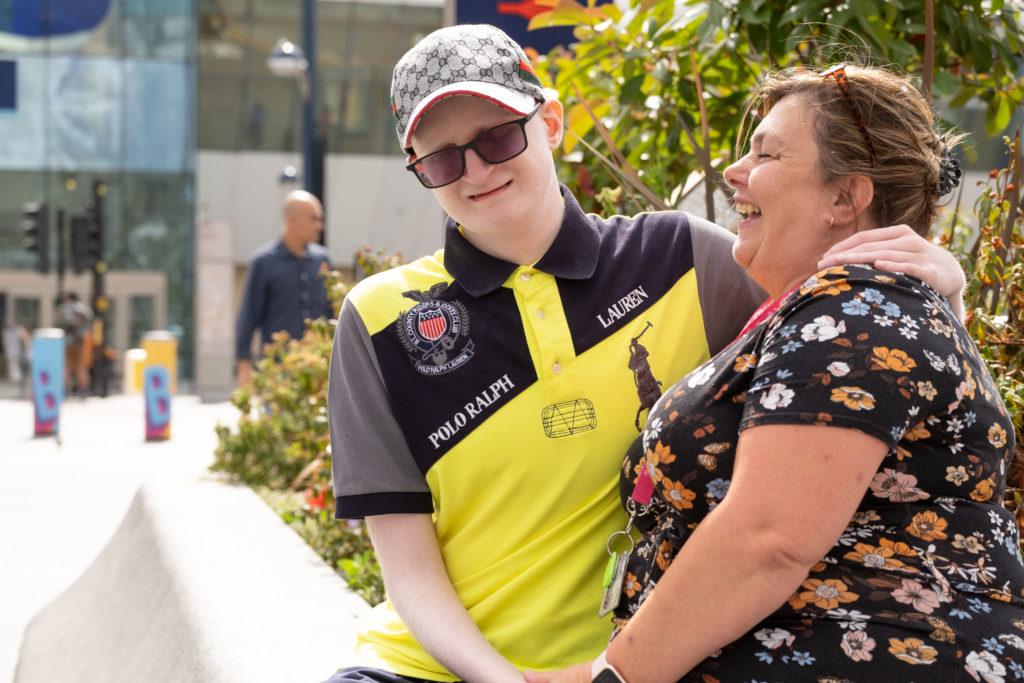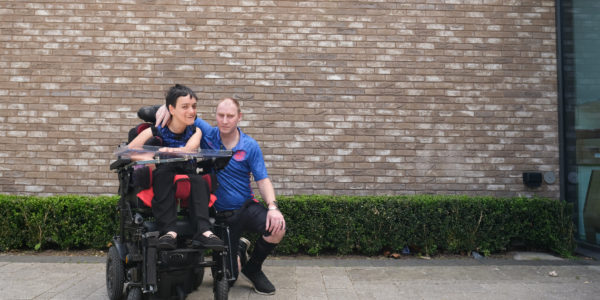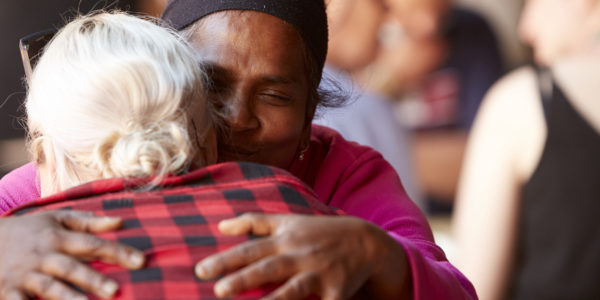What is a carer?
Being a carer looks different for everyone. A carer is someone who supports someone who can’t carry out everyday tasks by themselves.

Sense is here for you
We support people with complex disabilities of all ages and their carers. Get in touch with our team to find out how we could support you.
Broadly, if you spend a significant amount of time caring for someone who is disabled, ill or has mental health issues, then you could be considered a carer.
On this page, find out more about what a carer is and how to know if you are a carer.
The definition of a carer under the Care Act 2014
The Care Act 2014 is a piece of legislation that sets out the laws around social care in the UK. It defines “carer” as “an adult who provides or intends to provide care for another adult”.
This doesn’t include you if you care for someone as part of a contract or as voluntary work for an organisation.
Carers are sometimes referred to as “unpaid carers”, because caring is not their job.
Am I a carer?
It can be hard to recognise that you’re a carer. You might see yourself as a partner, friend or sibling to the person you care for, rather than their carer.
On average, a person may have been caring for someone for two years before they feel able to call themself a “carer”.
If you’re wondering if you are a carer, have a think about the following questions:
- Do you spend a lot of time caring for someone? (This varies for everyone, but it could mean caring for anything from a few hours a day, to constantly.)
- Is this person unable to care for themselves because of disability, mental health issues, frailty or illness?
- Does this care involve things like helping someone to do necessary everyday things like eat, wash and do their shopping?
- Is your caring work unpaid?
If you answered “yes” to all of the above, you might want to identify as a carer.
You can be a carer at any age – and you don’t have to live with the person you’re caring for to be able to get help and support.
Am I a carer for my child?
It might seem odd to think of yourself as a carer for your child. You might prefer to think of yourself as a parent before anything else.
But if you give your child extra support because of disability, illness or mental health issues, then you could be considered a parent carer.
Parent carers are mostly entitled to the same support as people who care for adults. Find out more about support for parent carers from Action for Carers.
What are caring responsibilities?
Caring responsibilities can include a huge variety of different tasks.
You might support the person you care for with:
- Personal care (bathing, showering, getting dressed or going to the toilet).
- Getting around, both inside and outside the home.
- Making meals and eating.
- Cleaning and washing up.
- Taking medication.
- Emotional support.
- Taking care of bills and other admin.
How do I prove I am a carer?
If you want to prove to someone (like a venue or transport manager) that you’re a carer, you could show them your Carer’s Allowance award letter.
Some local authorities offer ID cards, Carer Passports or other schemes to identify people as carers. Find out what’s on offer in your local area via Carers UK.
You can also register as a carer with your GP.
If you’re wondering how to prove you’re a carer to access benefits or other support, see our other pages in this section.
More information for carers
This content was last reviewed in October 2022. We’ll review it again next year.



